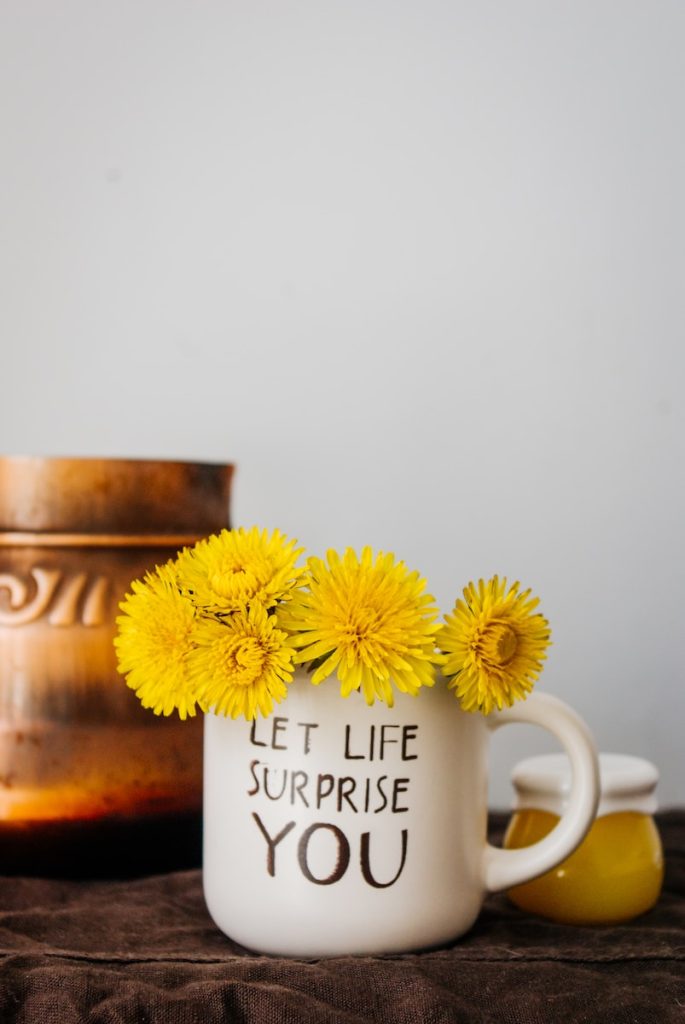Cultivate Presence in Your Daily Life
Introduction to Mindfulness: Mindfulness is a practice that has gained popularity in recent years due to its effectiveness in reducing stress and promoting overall well-being.
It involves paying attention to the present moment and accepting it without judgment. Its practice can be applied to daily activities such as eating, walking, and working.
Cultivating can help individuals develop a greater sense of self-awareness and emotional regulation.
By being present now, individuals can better understand their thoughts and feelings, which can lead to more intentional decision-making.
Additionally, Mindfulness has been shown to improve physical health by reducing symptoms of anxiety, depression, and chronic pain.
Understanding Mindfulness
Mindfulness is a mental state of awareness, attention, and focus on the present moment.
It is a practice that cultivates presence in daily life and helps individuals become more aware of their thoughts, feelings, and sensations.
Mindfulness involves paying attention to what is happening in the present moment without judgment or distraction.
Understanding Mindfulness, it is crucial to recognize that it is not about emptying the mind or stopping thoughts altogether.
Instead, it is about being aware of thoughts and feelings as they arise and observing them without judgment.
This practice of non-judgmental awareness can help individuals develop a more compassionate and accepting relationship with themselves and others.
Mindfulness can be practiced in many ways, including meditation, yoga, or simply by paying attention to the present moment during daily activities such as walking or eating.
Mindfulness practice aims to become more aware of the present moment and cultivate a sense of calm and clarity.
One of the critical aspects of Mindfulness is attention and awareness.
Mindfulness practice involves training the mind to focus on the present moment rather than becoming distracted by thoughts or worries about the past or future.
By focusing on the present moment, individuals can become more aware of their thoughts and feelings and learn to respond skillfully.
Overall, Mindfulness is a practice that can help individuals cultivate a greater sense of presence and awareness in daily life.
By learning to be more mindful, individuals can better understand themselves and their world and respond to life’s challenges with greater clarity and compassion.
Benefits of Mindfulness
Mindfulness has been shown to have numerous benefits for overall well-being, emotional regulation, and reducing stress.
Individuals can experience excellent balance and improved immune system function by cultivating presence in daily life.
One of the primary benefits of Mindfulness is its ability to reduce stress and anxiety.
By focusing on the present moment and accepting thoughts and feelings without judgment, individuals can learn to manage stress more effectively.
It can improve emotional regulation and a greater sense of overall well-being.
Mindfulness has also been shown to impact both physical and mental health positively.
Studies have found that practicing Mindfulness can improve immune system function, reduce symptoms of depression and anxiety, and even lower blood pressure.
By cultivating Mindfulness, individuals can also learn to manage their thoughts and emotions better.
Rather than becoming overwhelmed by negative thoughts or feelings, individuals can learn to observe them without judgment and respond more constructively.
Overall, the benefits of Mindfulness are numerous and wide-ranging.
By incorporating Mindfulness into their daily lives, individuals can experience improved well-being, reduced stress and anxiety, and greater emotional regulation.
Cultivating Mindfulness in Daily Life
Cultivating Mindfulness in daily life is all about being present in the moment, aware of your thoughts and feelings, and fully engaged in whatever you are doing.
It is a practice that can help you reduce stress, increase focus and concentration, and improve overall well-being.
One of the best ways to cultivate Mindfulness in daily life is to start with small, simple practices that can be easily incorporated into your everyday routine. For example, you can try:
- Taking a few deep breaths before starting a task or activity
- Practicing gratitude by reflecting on things you are thankful for throughout the day
- Engaging in mindful listening by entirely focusing on what someone is saying without distractions
- Practicing mindful eating by savoring each bite of food and paying attention to how it makes you feel
Another way to cultivate Mindfulness daily is to create a daily mindfulness routine.
It can include activities such as meditation, yoga, or journaling, which can help you develop a more profound sense of awareness and presence.
It’s important to remember that cultivating Mindfulness is a practice that requires patience and consistency. It cannot be achieved overnight but rather a lifelong journey.
By incorporating small practices into your daily routine and committing to regular mindfulness practice, you can gradually cultivate a greater sense of presence and Mindfulness in your everyday life.
Mindfulness Techniques
Mindfulness techniques are simple yet powerful practices that can be incorporated into daily life to cultivate presence and awareness.
These techniques involve focusing on the present moment without judgment or distraction.
Here are some standard mindfulness techniques that can be used to improve focus, reduce stress, and enhance well-being:
- Mindful Breathing: This technique focuses on the breath, noticing the sensation of air moving in and out of the body. By paying attention to the breath, one can anchor the mind in the present moment and cultivate a sense of calm and relaxation.
- Body Scan: This technique involves bringing awareness to the physical sensations in the body, from the toes to the top of the head. By scanning the body with attention, one can release tension and stress and become more grounded in the present moment.
- RAIN: This technique involves recognizing and accepting difficult emotions and experiences without judgment or resistance. One can cultivate self-awareness and emotional resilience by practicing RAIN (Recognize, Accept, Investigate, and Non-Identification).
- Guided Meditation: This technique involves following a guided meditation, which can be done in person or online. Listening to a teacher’s voice can guide one through mindfulness practice and learning new techniques for cultivating presence and awareness.
- Yoga: This technique involves practicing yoga poses with mindful attention to the breath and body. By combining movement with Mindfulness, one can improve physical health and mental well-being.
Mindfulness can be a powerful tool for improving focus, reducing stress, and enhancing well-being.
By incorporating these practices into daily life, one can cultivate presence and awareness and live more fully in the present moment.
Mindfulness and Emotions
Mindfulness is a technique that can help individuals cultivate presence in daily life and better manage their emotions.
By paying attention to the present moment, individuals can learn to identify their thoughts and feelings without judgment. It can help them respond to their emotions more constructively.
When it comes to emotions, Mindfulness can help individuals develop emotional resilience. It means they can better handle difficult emotions and bounce back from setbacks.
By practicing Mindfulness, individuals can learn to accept their emotions without judgment and develop empathy for others.
One of the critical benefits of Mindfulness is that it can help individuals reduce anxiety.
By focusing on the present moment, individuals can learn to let go of worries about the past or future. It can help them feel more grounded and calmer.
Another important aspect of Mindfulness is acceptance.
When practicing Mindfulness, individuals learn to accept their thoughts and feelings without judgment. It can help them develop a greater sense of self-awareness and self-compassion.
Mindfulness can be a powerful tool for managing emotions and developing emotional resilience. By practicing Mindfulness regularly, individuals can learn to respond to their emotions constructively and live more fulfilling lives.
Mindfulness in Various Forms
Mindfulness can be practiced in various forms, making it easy to incorporate into daily life. Here are some examples:
Mindful Walking
Walking is a fantastic way to practice Mindfulness. It involves paying attention to the sensations of walking, such as the movement of the feet, the feeling of the ground beneath them, and the movement of the arms.
Mindful walking can be done anywhere, whether it’s a walk in the park or a stroll around the office.
Mindful Eating
Mindful eating is about paying attention to the eating experience, including the food’s taste, texture, and smell.
It involves eating slowly, savoring each bite, and awareness of the body’s hunger and fullness signals.
Mindful eating can help improve digestion, reduce overeating, and increase enjoyment of food.
Mindful Communication
Mindful communication involves being fully present and attentive during conversations.
It means listening with an open mind, without judgment or distraction, and responding with kindness and clarity.
Mindful communication can improve relationships, reduce misunderstandings, and increase empathy.
Color and Energy
Mindfulness can be practiced through color and energy. Being mindful of color means paying attention to the colors around you and how they make you feel.
Being mindful of energy means being aware of the energy of people, places, and things and how it affects you. Both practices can help increase awareness and appreciation of the world around you.
Distraction and Openness
Mindfulness also involves being aware of distractions and practicing openness. Being mindful of distractions means noticing when the mind wanders and gently bringing it back to the present moment.
Being mindful of openness means being open to new experiences and perspectives without judgment or preconceptions.
Both practices can help increase focus, creativity, and resilience.
Sleep and Courses
Finally, Mindfulness can also be practiced through sleep and courses. Being mindful of sleep means paying attention to the quality and quantity of sleep and taking steps to improve it.
Being mindful of courses means being aware of opportunities to learn and grow and taking advantage of them.
Both practices can help improve overall well-being and personal development.
In summary,
Mindfulness can be practiced in various forms, making it easy to incorporate into daily life.
Whether it’s through mindful walking, eating, communication, color and energy, distraction and openness, sleep, or courses, Mindfulness can help increase awareness, focus, and well-being.
Practicing Mindfulness
To practice Mindfulness, one must set aside time to focus on the present moment. It can be done by sitting or lying in a quiet place, closing the eyes, and paying attention to your breath.
The mind will inevitably wander, and when it does, gently redirect the attention back to the breath.
Patience is key when practicing Mindfulness. It takes time and consistent effort to cultivate presence in daily life. One should not expect to become a master overnight.
Instead, focus on the process and the minor improvements made along the way.
It can be challenging to practice Mindfulness when under pressure or stress. However, it is during these moments that Mindfulness can be most beneficial. One can alleviate anxiety and gain a clearer perspective by bringing attention to the present moment.
Compassion is an essential aspect of mindfulness practice. It is vital to approach oneself with kindness and understanding, especially when the mind wanders or distractions arise.
Treating oneself with compassion can cultivate a more positive and productive mindset.
When practicing Mindfulness, it is essential to engage the senses.
Notice the sights, sounds, smells, and sensations in the present moment. It can help to ground oneself and bring attention back to the present.
Distractions are inevitable when practicing Mindfulness. Instead of becoming frustrated or discouraged, acknowledge the distraction, and gently redirect attention to the breath.
Setting an intention for mindfulness practice can be helpful.
It can be as simple as setting the intention to be present and focused for a certain amount each day. One can approach mindfulness practice with purpose and clarity by setting an intention.
Non-judgment is a critical element of mindfulness practice.
It is essential to approach thoughts and emotions without judgment or attachment. Notice them as they arise and let them pass without becoming attached to them.
By consistently practicing Mindfulness, one can experience transformation in their daily life. A more present and focused mindset can cultivate greater peace and happiness daily.
Research on Mindfulness
Research on Mindfulness has been growing in recent years, with numerous studies exploring the benefits of mindfulness practices on various aspects of health and well-being.
Many of these studies have focused on the effects of Mindfulness on stress, anxiety, emotional regulation, and the immune system.
One study published in the Journal of Psychosomatic Research found that mindfulness-based stress reduction (MBSR) can significantly reduce symptoms of stress and anxiety in individuals experiencing chronic illness.
Another study published in the journal Mindfulness found that mindfulness meditation can improve emotional regulation in individuals with anxiety disorders.
Research has also shown that mindfulness practices can positively impact the immune system.
A study published in Brain, Behavior, and Immunity found that mindfulness meditation can increase the activity of natural killer cells, which play a vital role in the immune response.
The research suggests that mindfulness practices can effectively manage stress and improve emotional well-being.
While more research is needed to fully understand the mechanisms behind these benefits, the growing body of evidence supports the use of Mindfulness as a tool for promoting health and well-being.
Conclusion
In conclusion, Mindfulness is a valuable practice that can help individuals cultivate presence daily.
Individuals can reduce stress, improve their mental health, and enhance their overall well-being by focusing on the present moment.
While Mindfulness may seem daunting at first, it is a skill that can be developed with practice.
By starting small and incorporating mindfulness techniques into their daily routine, individuals can gradually build their mindfulness muscles and experience the benefits of this practice.
It is important to note that Mindfulness is not a one-size-fits-all solution and may not be suitable for everyone.
However, for those willing to try it, Mindfulness can be a powerful tool for improving their quality of life.
Mindfulness is a simple yet effective way to bring more awareness and presence into daily life. By taking the time to pause, breathe, and focus on the present moment, individuals can experience greater peace, clarity, and fulfillment.
Elizabeth Redd: I am a passionate advocate for Health and Healing, dedicated to empowering individuals to live their best lives.
As the founder and publisher of Health and Healing, I have established myself as a guiding force in the wellness industry.
I am committed to providing the latest research, holistic approaches, and inspiring stories to open new possibilities for your health and healing journey.
Learn more about Elizabeth and Join Us at Health and Healing. Also, check out My About Page.








0 Comments